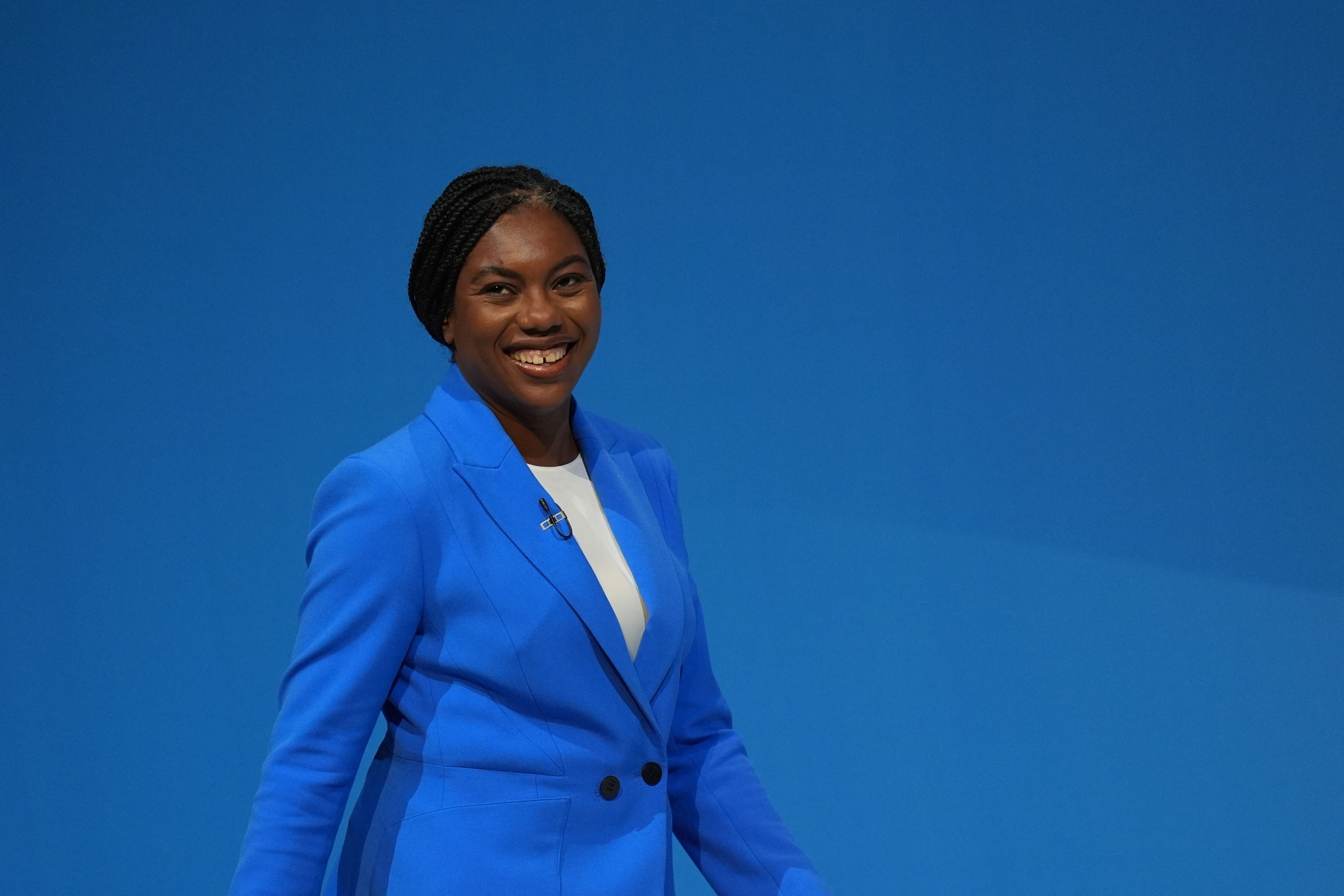What will be the top issues facing Kemi Badenoch as leader of the Conservatives?
Ms Badenoch will be at the helm as the party tries to recover in the wake of the July general election result.

Kemi Badenoch was declared the new Conservative Party leader on Saturday morning, bringing an end to the four-month-long contest.
Ms Badenoch will be at the helm as the party tries to recover in the wake of the July general election result, but what are going to be the immediate issues facing the Tories?
– Party unity
Ms Badenoch becomes the Tory party’s fourth leader since the summer of 2022.
Tory MPs have had public disagreements and squabbles in recent years over topics from immigration to integrity, and one Tory parliamentarian has said bringing the party back together is the next leader’s number one task.
Conservative peer and elections commentator, Lord Robert Hayward, told the PA news agency that “the biggest single challenge is to get the party to stop arguing with each other”.
“It’s easy to say we’re going for unity, but I’m afraid over the last eight years … public disagreement has become endemic for large sections of the parliamentary party,” he explained.
However, while he says it may be a “difficult” job, Lord Hayward believes that the “one great asset” the new leader has got when it comes to this is that it is Labour in government.
He explained: “The Labour Government is now attracting all the attention and is facing all sorts of difficulties.”
He added: “The opposition – although much diminished – has got something to fire at which is much easier than firing at each other.”
– Immigration
The issue of immigration and the European Court of Human Rights (ECHR) is one that could bring party unity back to centre stage and has been a much-discussed topic during the campaign.
Mr Jenrick, a former immigration minister who quit Rishi Sunak’s government last year amid a disagreement over the Rwanda plan, had called to leave the ECHR and said the party should “get serious” on migration.
Ms Badenoch has said that focussing on the ECHR risks shutting “the conversation that we need to have with the entire country” on immigration, and has not gone as far as to say she would quit the agreement completely, writing in The Daily Telegraph in September that “if necessary” the UK should leave “international frameworks like the ECHR”.
Adam Drummond, the head of political and social research at pollster Opinium, said of the new leader, “it’s hard to see them not talking about immigration a lot”.
He told the PA news agency that the issue has “crept up” the priorities among people who intend on voting for the Conservatives or Reform UK, but that talking about it risks talking up the “salience” of a key issue for Reform.
“Like I said, I don’t think they’ll be able to risk the temptation to do that, but I don’t think they should,” Mr Drummond said.
– The economy
Focussing on the economy could provide a “viable” path back to power for the Conservatives, Mr Drummond suggested.
“Their temptation is going to be to focus a lot on immigration but, really, they should be talking about the economy,” he said.
Responding to Rachel Reeves’ first Budget on Wednesday, Ms Badenoch told LBC that “this is not a growth Budget”.
“Labour has no plan, they just want to blame the Conservatives,” she told the radio station.
Mr Drummond said that “given the economic situation” there could be a situation where “things do come unstuck for Labour” and the Conservatives could have a “viable” path back to power.
“But arguably they should focus on … trying to win the economic argument and be seen as viable economic stewards” rather than trying to chase back voters they lost on the right to Reform UK.
– Winning back votes lost at the general election
The Conservatives secured 121 seats at the general election in July, losing constituencies to Labour, the Liberal Democrats and Reform UK in different parts of the country.
Labour won almost 300 more seats than the Tories with 33% of the vote, compared to the Conservatives’ 23%.
As well as reuniting the party in Parliament, Lord Hayward said that under the new leader, the party has to “get a message across to the public at large” about their position as Labour’s main opposition.
“They’ve got voters on the left, people who went off to the Lib Dems and took large numbers of seats off the Tories, and they’ve got voters on the right, and all those who abstained.
“They’ve got to find a message that basically says, ‘we are the coherent opposition’.
“It’s not going to happen immediately, but it’s a question of whether they can do that over months.”
He said that MPs would “particularly” have to work over that period to “show that they are a cohesive group”.
Despite the loss of seats and votes in the general election, Mr Drummond said he thought warnings about the potential size of Labour’s majority worked well for the Conservatives.
“One of the, I think, successful things that the Tories did in the election was saying, ‘don’t give Labour a supermajority’.”
He added: “It did kind of focus attention on the size of the possible Labour win, rather than the question of who do you want to be in power.”
Bookmark popover
Removed from bookmarks